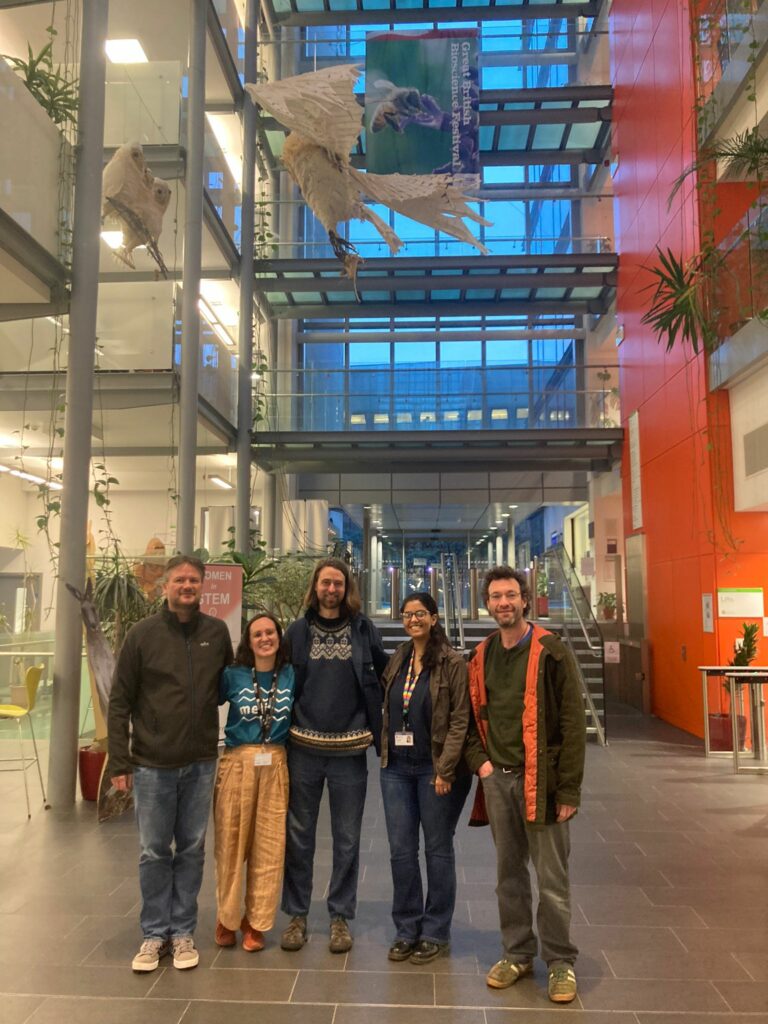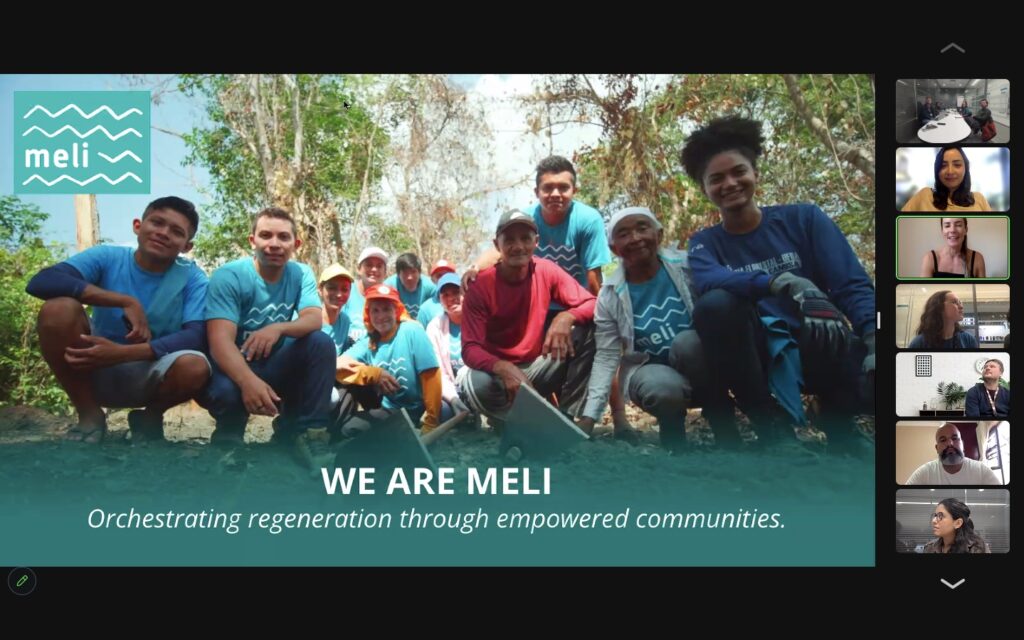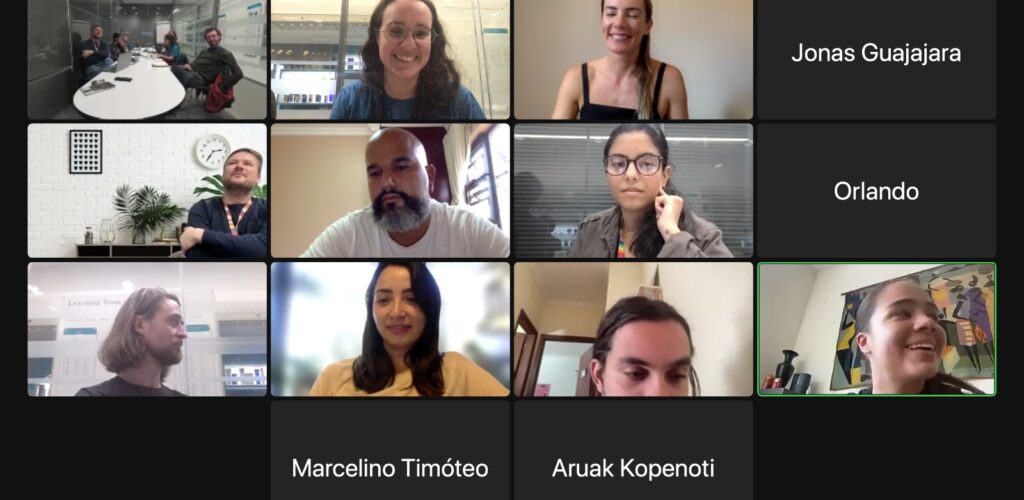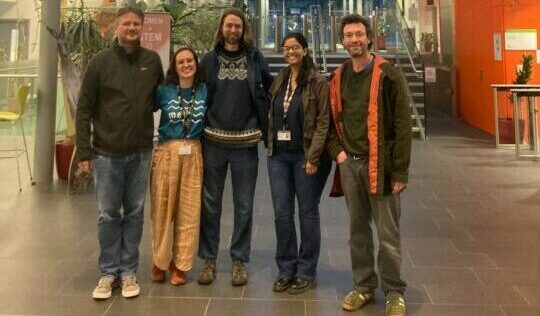An interdisciplinary event showcasing indigenous wisdom, academic research, and cutting-edge technology to conserve stingless bees and their habitats. The launch of the Meli-P2Panda app signifies a milestone in real-time monitoring and conservation efforts, uniting tradition, innovation, and academia to safeguard our natural world for future generations.
Author: Laura Soto
Leia em português
On a crisp morning of March 8th, the University of Bristol became a vibrant hub for an extraordinary convergence of minds and cultures. The event, organized by Meli in partnership with the School of Biological Studies, P2Panda, and our network of indigenous and local communities, focused on a shared passion: the conservation of stingless bees.

The morning sessions featured researchers from the University of Bristol who are at the forefront of stingless bee studies. Their presentations covered a range of topics from the ecological impact of stingless bees to innovative conservation strategies being employed around the globe. This academic perspective provided a scientific backdrop for the discussions that followed, highlighting the urgency and importance of protecting native bees.
In the afternoon, the focus shifted to the experiences of indigenous leaders who shared their deep-rooted knowledge and cultural practices related to stingless bees. Their narratives painted a vivid picture of the symbiotic relationship between their communities and the natural world, a relationship that has nurtured both for countless generations.

Our speakers were:
- Jonas Guajajara, beekeper from the Arariboia indigenous territory, Barreirinha Village in Lago Branco. Amazon Rainforest Biome.
- Orlando Bagunceiro, beekeper from Raízes da Ayahuasca village. Member of the Kokoma People. Amazon Rainforest Biome.
- Aruák Kopenoty, teacher and leader from the Terena indigenous people. Limão Verde. Cerrado – pantanal Ecosystem in Mato Grosso do Sul.
- Cacique Leonardo and Marcelino, leaders from the Mbya Guarani people in the State of São Paulo. Atlantic Forest Biome.
Dr. Christoph Grueter from Bristol University remarked, “The recent meeting between bee researchers and stingless beekeepers from different regions in Brazil, organized by Meli, was a remarkable exchange of knowledge and experiences. As a scientist, it was a rare opportunity to interact closely with beekeepers from traditional communities. The whole day was filled with insightful presentations from diverse groups, fostering collaboration and understanding in the vital field of bee management and conservation.”
During the event, we also launched, alongside P2Panda, our latest technological contribution: a new app designed to aid in the conservation efforts of stingless bees. This app represents a significant advancement in how data can be gathered and utilized, emphasizing user feedback and adaptive features that cater to the needs of remote and indigenous communities.
The app allows for the meticulous documentation of bee populations, their health, and their habitats. It empowers communities by enabling them to monitor and report changes in real-time, ensuring immediate action can be taken when needed. Its offline functionality is particularly beneficial in remote areas where internet access is sporadic.
After the official presentation of our application, the floor was opened to a round of questions and answers from future users, suggesting further enhancements that could make it even more effective in field conditions.

Throughout the Bee & Communities event, we created a solid foundation to continue collaborating across cultures and disciplines. It stands as a beacon of hope for safeguarding our natural world, blending technology, science, and ancestral wisdom in synergy. We are excited to continue this journey, fostering further collaboration and knowledge exchange to benefit both our ecological and cultural heritage.
“Today was not just about sharing knowledge but about committing to act together. With tools like the Meli-P2Panda app and the support of the academic community, we are more equipped than ever to safeguard our precious bees and, by extension, our forests.”
– Rômulo Kambeba Omágua, Indigenous leader and activist in Alto Solimoes, Amazonas. Currently teaching over 100 children, fostering ecological and cultural awareness.
Your donation can have a positive impact on the world!
Subscribe to receive our Newsletter!
Find us also at Linkedin, Facebook, Twitter or Instagram
www.meli-bees.org
❤️

